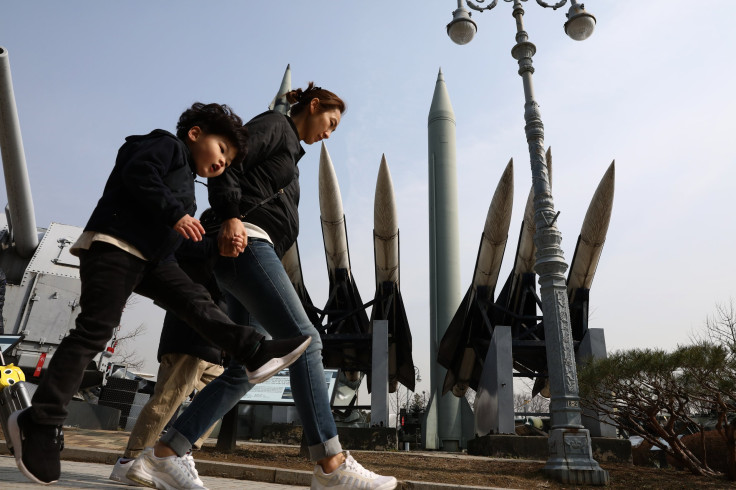North Korea - US Relations: More Nuclear Weapons Testing In The Works?

Less than a month after a second landmark summit between the United States and North Korea and a little over a week before satellite images of activity at a North Korean production facility showed evidence of preparation for a possible missile launch, a North Korean official has indicated that the country might break off negotiations entirely with the U.S.
Vice Foreign Minister Choe Son Hui on Friday told reporters in Pyongyang that the country has been disappointed with the turn of events the conference provided, a fact which could ultimately yield to North Korea's decision to eschew the country's discretionary moratorium on their nuclear missiles and weapons program.
"We have no intention to yield to the U.S. demands [put forward at the Hanoi summit] in any form, nor are we willing to engage in negotiations of this kind," said Choe.
Choe added that North Korea was disappointed in failing to reach a substantial agreement between the two countries at last month's Hanoi summit.
Choe placed the blame on the inflexibility of the American delegation at the time, stating that the U.S. was "too busy with pursuing their own political interests and had no sincere intention to achieve a result."
The North Korean vice minister also placed the onus on Secretary of State Mike Pompeo and National Security Advisor John Bolton for an "atmosphere of hostility and mistrust."
Bolton, who had previously discussed the reports from North Korea with a South Korean contingency, called Choe's assessment of the situation "inaccurate" but was unable to give a more detailed response without conferring with other members of the government.
"Just in the past hour, I spoke with my South Korean counterpart and we've discussed their reaction and our reaction but I would like to speak further within U.S. government before we respond," Bolton said Friday on the White House North Lawn.
Pompeo rebutted Choe's assessment during a Friday briefing.
"In Hanoi, on multiple occasions, [Kim] spoke directly to the president and made a commitment that he would not resume nuclear testing, nor would he resume missile testing," Pompeo said. "That's Chairman Kim [Jong Un's] word. We have every expectation he will live up to that commitment."
The summit talks in February ended on a somewhat abrupt note when North Korea asked for five major U.S. sanctions to be lifted and offered to disassemble a major nuclear weapons research site at the North Korean city of Yongbyon.
The U.S. has stated that they would only agree to relieve sanctions which have crippled North Korea's population due to a possible acute food shortage, should the authoritarian country abandoned its nuclear program.
U.S. Special Envoy on North Korea Stephen Biegun once again made it concretely clear that the U.S. has no interest in changing its stance on North Korea's disarmament, nor allow a gradual process of denuclearization.
"We are not going to do denuclearization incrementally," Biegun said on Monday.
Choe's statements come after recent satellite images of a facility near Pyongyang showed the site was being used for a possible missile or space rocket launch.
© Copyright IBTimes 2024. All rights reserved.











